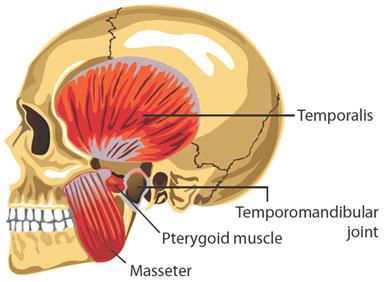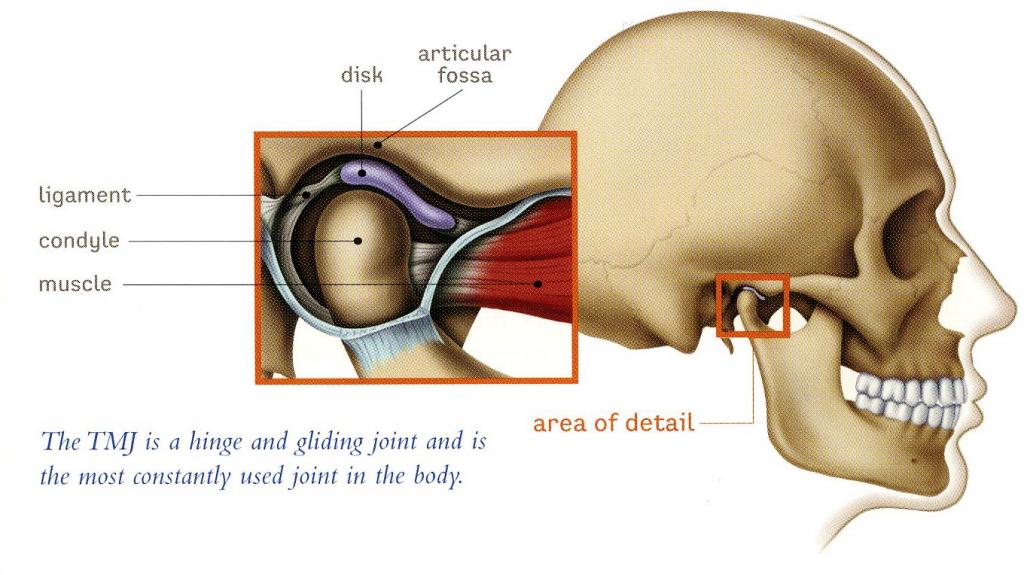TMJ Disorder

Temporomandibular joint is a joint responsible for complex movements of the jaw during yawing, talking and eating. TMJ disorders may be due to many reasons and we have to compromise with our daily lifestyle needs if diagnosed with TMJ problem. Disorders associated with the temporomandibular joint are as followed
1. Developmental disorders of the TMJ: This is a disorder that is present at the birth due to any developmental abnormality. Most common cause of this development problem is that mother undergone excessive radiation during pregnancy.
2. Inflammatory disorders of the joint: Bacterial inflammation of the bones of the jaw leads to TMJ disorder. Surgery near the TMJ region increases the chances of inflammation at the surgical incision. Proper cleaning and care of the surgical sight is necessary to prevent TMJ disorders.
3.Traumatic disorders of TMJ: In this type the joint is effected due to direct blow on the joint. Road accidents is the most common cause of the traumatic disorder of TMJ.
4.Neoplastic disorders: Neoplasm near the TMJ often involve the jaw bone. TMJ disorder Depend upon the severity of the neoplasm.
5.MPDS: Myofacial facial pain dysfunction syndrome is associated with spasm of the facial muscles as well as jaw involvement.
Signs and symptoms
Pain and tenderness of the jaw joint area, neck and shoulders
Difficulty in opening and closing of the mouth wide mouth
Patient having problem in chewing the food.
Pain around the ear
Swelling on the side of the face
Other common symptoms includes toothache,headaches, neck aches, dizziness, upper shoulder pain and ringing sensations in the ear called tinnitus.

Causes
The most common cause of the TMJ problem is direct blow on the jaw due to any accident. Other habitual causes include grinding of the teeth, bruxism, and wrong closure of the mouth. Sometimes the joint is also damaged by arthritis or rheumatoid arthritis.
Stress which cause a person to tighten jaw and clench the teeth.
Diagnosis
There is no specific test to diagnose TMJ problems. Proper history is important in the diagnostic criteria.
MRI of the joint is done to view the changes in the joint components.
Treatment
Some TMJ symptoms are well relived by home remedies or stress reduction and relaxation technique.
Ice or cold packs to the area of joint.
Non steroidal anti-inflammatory drugs(NSAIDS)such as ibuprofen(Advil)
Eating soft foods avoid bitting the hard food and chewing gums.
Massage the joint and neck muscles.
Relaxation and stress reducing techniques.
If home-remedies are not helpful in controlling the pain then medical treatment is required
Botox may be used to relax the muscles.
Dental splint which resembles to the mouth guard placed in the mouth which keep the teeth align and prevent tooth grinding.
Marijuana is preferred in the case of severe pain where it is legal.
In very severe cases surgery is required
TMJ arthroscopy is done which is minimal invasive procedure. Recovery is fast in this procedure usually one week.
Sometimes joint replacement is needed which is very complex procedure patient remain in the hospital for 2 weeks and recovery time is 6 weeks.


